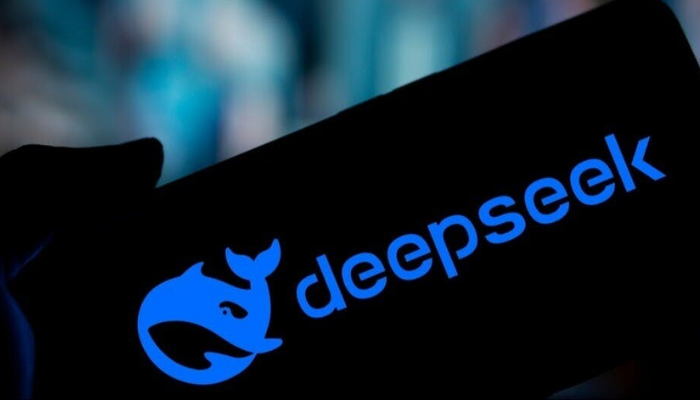It’s no secret that the AI landscape is evolving at lightning speed, but one app in particular, DeepSeek, has taken the market by storm. Emerging seemingly overnight, DeepSeek has quickly captured the attention of users, businesses, and governments alike. Positioned as a next-generation AI platform, it’s already drawing comparisons to Meta’s offerings and even ChatGPT. However, as we embrace this new technology, it’s vital to take a critical look at the implications of its rapid adoption—especially considering the app’s origins and potential risks.
China’s ability to swiftly release and scale platforms like DeepSeek should concern us, not just as a matter of innovation but also from a national security standpoint. While the United States has long led the charge in technology, the competitive gap is narrowing. Winning the AI race is no longer just about developing smarter tools—it’s about safeguarding our economy, our security, and our values. DeepSeek serves as a stark reminder of how urgent this challenge is.
DeepSeek: A New Frontier or a Familiar Risk?
For many, DeepSeek feels like déjà vu, conjuring memories of TikTok’s meteoric rise and the subsequent scrutiny it faced over user data and potential ties to the Chinese government. Like TikTok, DeepSeek collects vast amounts of data from users, ranging from location and personal preferences to behavioral insights. However, as an AI-based application, DeepSeek doesn’t just collect data—it analyzes it with unprecedented depth and precision.
To put it bluntly: the risks posed by AI apps like DeepSeek make TikTok look like child’s play. TikTok primarily serves as a content-sharing platform that collects data to refine user experiences. DeepSeek, on the other hand, leverages AI to understand and interpret the data it collects, diving into the “why” behind your behaviors and decisions.
Here’s why that matters:
- AI Understands Context: Unlike traditional apps, AI-based platforms don’t just know what you do—they understand why you do it. Through sentiment analysis, voice recognition, and behavioral pattern tracking, DeepSeek can create a disturbingly detailed profile of its users, including their emotional triggers, decision-making habits, and social connections.
- Biometric and Health Data: AI apps often collect facial recognition, voice data, and even subtle health indicators like stress or fatigue. This is far more personal than the browsing habits TikTok might capture.
- Scalable Manipulation: AI can analyze and influence user behavior in real-time, delivering hyper-targeted content that is finely tuned to shape your opinions, actions, or even purchasing decisions.
- Data Consolidation: DeepSeek could potentially integrate user data across platforms and devices, building a comprehensive picture that includes work habits, private conversations, and sensitive business information.
The National Security Risk
While data collection is an issue with any app, the stakes are significantly higher when that data could potentially end up in the hands of a hostile government. Apps developed in countries with authoritarian regimes, like China, are often subject to laws that require companies to share data with their governments. This opens the door for potential misuse of data, not just for economic advantage but for political and military strategies.
Imagine this scenario: An app like DeepSeek, embedded in millions of devices, could not only map personal behavior but also track sensitive business activities, trade secrets, and even government operations. The same AI that enhances user experiences could just as easily identify vulnerabilities or anticipate trends in ways that could undermine U.S. interests.
A Call for Vigilance
The rise of DeepSeek underscores the urgent need for a national strategy to compete in the AI race. Our innovation efforts must be backed by strong regulations to protect sensitive data and hold companies accountable for how they manage user information. At the same time, individuals and businesses need to approach new apps with caution.
Here are a few things to consider:
- Be Critical About App Permissions: Many apps ask for access to more information than they need. If an app requests access to your contacts, location, or microphone without a clear reason, think twice before granting it.
- Protect Company Data: Avoid downloading apps like DeepSeek on devices connected to your workplace, especially if they house proprietary or sensitive information.
- Understand the Risks: It’s not just about what data is collected—it’s about how that data could be used. AI platforms can infer and exploit information in ways we’re only beginning to understand.
The Bigger Picture
Ultimately, the question isn’t whether AI apps like DeepSeek will dominate the market—it’s how prepared we are to handle the risks they bring. Foreign-developed applications, especially those tied to governments with a history of surveillance and control, must be viewed through a critical lens. The data these apps collect isn’t just a byproduct of their functionality; it’s a resource that could be weaponized in ways that jeopardize both individual privacy and national security.
As the U.S. strives to remain competitive in the AI race, we must focus not only on innovation but also on creating an environment that values transparency, accountability, and security. The stakes are too high for complacency. Every app we download is a choice—and in the age of AI, those choices matter more than ever.
